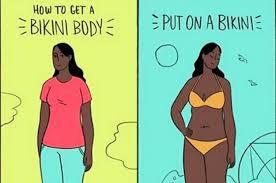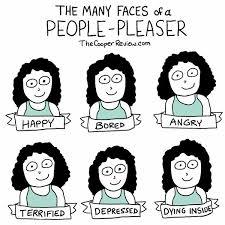Marcia Sirota's Blog, page 28
August 26, 2018
Five Back-to-School Tips to Maximize Your Success
It’s back-to-school season and we’re all gearing up for the new fall term. Parents are preparing their kids to hit the books and grown-ups are embarking on projects that start revving up as soon as summer’s over.
It’s a new beginning and we can enter it armed with a positive attitude and tools designed to maximize our success. Whether you’re a career person, high school or university student, or a parent, here are five tips for success in the back-to-school season:
Mindfulness: Starting a mindfulness meditation practice has many potential benefits. It can help you be more aware of your feelings and needs and because of this, you can start making better choices in your life. It can reduce your stress, boost your mood and strengthen your focus – all of which will improve your performance, whether you’re at school or at work.
Self-compassion: People tend to beat themselves up at the drop of a hat. Self-compassion enables you to be kinder to yourself. It can help you give up perfectionism and have more realistic expectations of yourself. When you can eliminate the negative self-talk, you boost your motivation and energy and success is much more likely.
Ruthless compassion: This is an attitude of tough-love toward yourself and others. You can be kinder to yourself, but that doesn’t mean you should let yourself off the hook when there’s work to be done. You can be caring toward others, but that doesn’t mean you should waste your time putting up with someone else’s bad behavior or waiting for them to change. Ruthless compassion is a balanced attitude. You care about others while maintaining strong boundaries; you hold yourself accountable while forgiving your mistakes.
Work ethic: Like Einstein says, genius is 10% inspiration and 90% perspiration. Everyone needs to invest time, energy and effort into achieving their goals. The more consistently you work toward these goals, the more likely it is that you’ll get there. When you develop a solid work ethic, it will maximize your potential over the entire course of your life.
JOMO, or the joy of missing out, is the ability to focus on things that are more important than immediate fun or excitement. The joy of missing out comes from doing things that are more meaningful in the moment – like spending time with loved ones, for example – or from putting your attention toward long-term goals that will bring real happiness and fulfillment. When you embrace JOMO, you can be your best self and live your best life.
Sign up here for my free monthly wellness newsletter. October 2018 is all about freedom from overeating and addiction.
August 25, 2018
For School Success, Give up FOMO and Embrace JOMO
It’s back-to-school season. The leaves are beginning to flutter downwards; the nights are getting cooler and old memories return, including one of a September afternoon during my second year of university.
I was stuck at my desk, gazing out the window at some of my fellow students. They were on the quad playing Frisbee and catching the last rays of summer sun. I was studying for a test and feeling like I was missing out on all the fun. But I sucked it up and shoved my nose back into the books. I had big goals and wasn’t willing to risk them by going out to play.
These days, we talk a lot about FOMO, or the fear of missing out. Lots of people are terrified to be left out of the action. But nobody needs to be part of the action 24/7. There are other things that we should be doing with our lives.
Sometimes, we need to hang out with our family; sometimes we need to buckle down and get working toward our goals; sometimes, we need to take care of the mundane but necessary tasks of life.
Looking at social media can give us a bad case of FOMO, because everyone who posts seems to be having such a great time. But life isn’t about the party. In fact, partying reminds me of the frosting on a cake.
The best ratio is 90% cake and 10% frosting; otherwise we can’t enjoy the experience. In life, we need much less fun and much more of the meaningful things like family, friends, interesting work and fulfilling pastimes, or we get out of balance and the fun stops being enjoyable.
We can keep suffering from FOMO or we can make the choice to sometimes step away from the fun and focus instead on the things that will give us what we really want. We can give up FOMO and embrace something called JOMO.
JOMO is a concept that was promoted early on by Canadian author Christina Crook in her book, The Joy of Missing Out: Finding Balance in a Wired World. I was recently interviewed by Jason Osler, CBC’s national trends columnist, about this concept. You can listen here to Jason’s clip and read about it here.
JOMO is about foregoing immediate gratification and instead, focusing on the bigger picture. If we want to have balance, happiness and success in life, we need to embrace JOMO.
When I think of those Frisbee-playing kids from my university days, I can’t imagine that they would have achieved much in their lives if they hadn’t sat down and started cracking the books. Without JOMO, a student can’t make the most of their time at school.
For those of you heading back to school, understanding the importance of JOMO is crucial. JOMO separates you from the rest of your classmates; it moves you toward bigger and better goals, gives you confidence and creates success. If you embrace JOMO at school, you’ll be set up for life.
JOMO can maximize your grades and bring you scholarships and awards; it’s more likely to get you the best jobs and bring you promotions. If you can put aside the fun when you need to and get the work done, you’ll be at a huge advantage compared to all your peers who are caught up in FOMO.
One great example of JOMO is the hours and hours of hard work Michael Phelps put in and the sacrifices he made in order to win multiple Olympic medals. He gave up FOMO and his life is pretty amazing.
They say that it takes 10,000 hours to achieve mastery. These days, it seems that fewer and fewer people are willing to put in the time and effort that will bring them a high level of success.
The good news is that if you go back to school embracing JOMO, success is available to you. The student who embraces JOMO will be the leader of the pack at school, at work, and over the course of their entire life.
Sign up here for my free monthly wellness newsletter. October 2018 is all about freedom from overeating and addiction.
July 30, 2018
Have a Summer Fling With Yourself
Summer is the time for romance and we’ve all heard of the summer fling. Two people get together in the spring and start a whirlwind romance full of passion and pleasure, only for things to fizzle out come September.
Many of us would love to find someone in the spring and have a summer fling. Despite being short-lived, it brings some much-needed energy and excitement into our lives. A burst of love does wonders for our happiness and self-esteem.
But spring is long past and summer is almost on its last legs. If your summer fling isn’t already underway, it’s probably not going to happen for you this year. But what if you tried something a bit different? What if you decided to have a summer fling with yourself? It’s not too late for that.
I’ve been doing a lot of research on what makes us happy and what makes life richer and more meaningful, and one important aspect of this is self-love. Have you asked yourself recently about the state of your self-love?
It’s easy to become infatuated with someone else, but when was the last time that you had loving feelings toward yourself?
Most of us spend our days comparing ourselves to others and feeling like we don’t measure up. We criticize ourselves and judge ourselves and constantly find fault. We feel inadequate, incompetent, stupid, foolish; useless. We feel full of guilt about what we should or shouldn’t be doing. None of this is conducive to self-love.
When somebody loves us, the world suddenly seems to be laid out in Technicolor. We’re floating along on a breeze of Oxytocin and endorphins – the bonding and pleasure chemicals in our brain. Feeling loved makes us more positive and optimistic; we stop sweating the small stuff. We feel generous and magnanimous. We’re kinder to strangers. Feeling loved brings out the best in us.
When we feel loved, the obstacles to our success seem to slip away. Hearing our new partner tell us how great we are makes us more confident and willing to take risks in our personal and professional life. We’re more altruistic, more positive and more productive and we get things done that we might have been procrastinating over, previously.
I’m not saying that you should give up on finding love out there in the world but in the meantime, while you still have a month left of summer, you can enjoy a summer fling – with yourself! And you can make it last all year long.
You can start to give yourself the same unconditional positive regard that a new romantic partner would give you. You can look at yourself through the eyes of love and acceptance, rather than through your typical critical, judging eyes. You can bring some newfound tolerance to your missteps and a sense of humor to your foibles in the same way as a new romantic partner would.
It’s easy to look to others to give you that elated feeling of being seen, loved and appreciated. For the same reason, it’s wonderful to spend the summer having a romantic fling. But what if there’s no-one on the horizon, right now? What if there’s nobody telling you how fantastic you are?
The great news is that you can still have that loving feeling. Right this minute, you can fall in love with yourself. And the even better news is that when you start a summer fling with yourself and you let it extend long past the season, you go into every situation feeling this amazing sense of self-love.
Other people will notice and they’ll find this new you extremely appealing. Those in your professional life will see you as super-confident and they’ll want to collaborate with you. Those in your personal life will find you more interesting. The reason is that people who love themselves are sending out a subtle message to everyone that say’s “I’m awesome! You should love me.”
Paradoxically, when we feel the most needy for love, our desperation is a turn-off and people tend to stay away. But when we love ourselves, we’re more attractive to everyone because they see us as strong, confident and self-sufficient, which makes us appear more desirable.
While there’s still a little bit of summer remaining, choose to have a summer fling with yourself. This newfound love affair within you may start to attract professional or personal success and either way, it’s certain to make you a much happier and more productive person moving into the cooler seasons ahead.
Sign up here for my free monthly wellness newsletter. September 2018 is all about successful back-to-school strategies.
My new online course is called How to stop People-Pleasing, Once And For All. Get it here for 50% off until September 1, 2018. It would be great if you could leave a course review.
July 24, 2018
It’s Bikini Season. Are You Sick of the Yo-Yo Dieting?
It’s summertime and for many, that means bikini season. One age-old question we ask ourselves is why do we lose weight for the summer, only to gain it all back in the fall? The answer may surprise you.
For those of us who like spending summer at the beach or by the pool, there’s a lot of pressure to look perfect. In this age of social media we’re more self-conscious than ever and even more reluctant to be photographed if we’re not in the best possible shape.
It’s a common pattern to start dieting in the early spring, in order to get ready for bikini season. We work hard at losing those few extra pounds so that we can fit into our bathing suit feeling as confident as possible. Then, once the summer is over, the weight starts piling back on and by the time the next spring rolls around we have to start the process all over again.
If this is you, you know what I’m talking about. It’s a cycle that keeps repeating. Every spring you start losing the weight and every fall, you start gaining it back. You might be feeling frustrated with yourself. Maybe you think that you lack self-discipline. But if that were true, you wouldn’t have been able to lose the weight each year, right in time for bikini season.
The truth is that there’s a psychological reason behind the repeating pattern of spring weight loss and autumn weight re-gain.
When we find ourselves caught up in see-saw dieting it doesn’t mean that we lack will-power. It means that we find it difficult not to return to our old habits of overeating.
We can impose a temporary food restriction plan on ourselves and tolerate it for a few months in order to be bikini ready for the summer, but once the pressure of looking perfect has passed, we resort back to our previous habits.
This applies to anyone who regularly overeats. Forcing ourselves to drop 5 or 10 or more pounds is almost always a short-term fix that can’t be sustained over the long run.
The reason for this is that when we diet, whether it’s to fit into a bikini, an old suit or a new wedding gown, we’re not looking at the most important issue: why we’ve been overeating in the first place.
People don’t overeat because they’re weak-willed and unable to resist their food cravings. They overeat because they’re unconsciously trying to soothe themselves or comfort themselves or fill themselves up emotionally. Deep within the psyche, the urge to overeat is really an urge to meet emotional needs for nurturing and/or healing.
And the reason that come the fall, we start regaining all the weight that we lost in time for bikini season is that we aren’t dealing directly with these emotional needs. If overeating, whether a little bit or a lot, is our only way of trying to meet these needs, how are we ever going to be able to give it up? The answer is that we won’t.
We have to get in touch with the real needs deep down inside that overeating is supposed to compensate for. If we can understand that what we crave isn’t actually food, and if we can directly give ourselves what we really need, we’ll lose the urge to overeat and we’ll be able to stop the yo-yo dieting, once and for all.
It won’t matter whether it’s wedding season, bikini season, holiday season or any season – we’ll be able to maintain a stable weight that we’re happy with, all year round. All we have to do is understand our true needs and give ourselves the emotional nurturing, fulfillment or soothing we’ve been craving all along.
If you’re interested to learn more about how to effectively deal with the feelings and needs at the root of your overeating, you can check out my books: Emotional Overeating: Know the Triggers, Heal Your Mind and Never Diet Again, or Loving Heart, Quiet Mind, Healthy Body: Affirmations for Transforming Your Body and Your Life.
Also, you can sign up here for my free monthly wellness newsletter to be updated on my upcoming online course, How to Stop Overeating, Once and For All.
July 23, 2018
Why You Need Mindfulness Meditation Right Now
The world is getting crazier and people are more and more stressed out. Between the political climate and the actual climate, we’re feeling the heat and it’s taking its toll.
It’s impossible to know how things will go – will our government do the right thing? Will business and industry finally wake up to the crisis of global warming? – but there’s something we can all do, right now, to cope a lot better. It’s called mindfulness meditation.
Mindfulness meditation comes out of the old tradition of religious meditation. It’s been done for ages by the Buddhist priests, Hindu worshipers, Tibetan Lamas, Jewish and Christian mystics. Interestingly, there are a number of things all these traditions have in common.
In order to meditate, or to practice mindfulness meditation, a person needs to sit quietly in a room with no distractions and they need to focus – whether on their breath, a few repeated words or on an object. The purpose is to clear the mind of all the chatter and find a calm, peaceful state of being for a few minutes during each day.
Mindfulness meditation separates this practice from its original religious basis and allows everyone and anyone to enjoy it. You can follow whatever religion, or no religion, you choose, and you can also enjoy the practice of mindfulness meditation.
The most challenging part of any mindfulness practice isn’t the actual sitting and breathing. It’s not even the efforts you make to silence the chatter in your mind. The biggest challenge of mindfulness is finding the discipline to make the time each day to sit and focus. For some reason, we’ll do almost anything rather than stop, breathe and try to calm our racing thoughts.
It’s as though our minds are attached to the business and the speed and they resist our desires to slow down. It’s up to each of us to be determined to carve out the five, ten or twenty minutes, once or twice each day to sit, breathe and focus our attention.
The good news is that the more we practice mindfulness meditation, the more benefits will accrue and the more motivated we’ll be to do it on a regular basis. When we start feeling calmer, happier and more energized we’ll be glad to make the time each day to do our mindfulness practice.
The other thing that might make it challenging to do a regular mindfulness practice is that it isn’t easy to calm the mind. As soon as we’ve taken a breath we’re thinking about something and off we go into a whole new stream of thoughts. We finally catch ourselves doing this and have to stop, refocus, and go back to our breathing, counting or whatever it is that we’re putting our attention on.
it’s important not to get angry or disappointed with ourselves. We can notice that our mind has wandered and just bring ourselves back to focus. With a bit of self-compassion, we can lose our focus and then regain it over and over again without ever feeling bad.
We don’t have to get fixated on the goal of an empty mind. That will happen if and when it happens. In the meantime, we just keep coming back to the breath, the candle, the counting. The goal is to keep meditating, more than to empty the mind ASAP.
One mindfulness exercise I really enjoy doing is the body scan. It’s a way for me to tune in and notice where I’m holding tension or pain in my body. It’s a very simple exercise to do.
You sit in a chair with a straight back and plant your feet on the floor. You bring your attention to your breathing and notice your in-breaths and out-breaths. Then, starting with the soles of your feet, as you continue to inhale and exhale through your nostrils, notice how each part of your body feels.
Travel up your body, not missing any part, inside or out. Notice if there’s any pain, tension, tightness or restriction, and then breath some positive energy into each of these parts of your body.
You don’t need to try and change anything in this exercise. You can just notice, and breathe, and keep your feet grounded on the floor. Notice these parts of your body without judgment or trying to analyze anything. You can do these things later.
While you’re doing the mindfulness exercise, all you need to do is notice, breathe, and move on to the next body part. And then, at the end, just take a moment to tune in to how you feel, mentally, physically and emotionally. Usually, it feels good to be in touch with the body, even if we notice some aches and pains or tightness.
Doing this exercise can have a calming and integrating effect. You may discover some tightness in your shoulder that had been bothering you just under the surface of your conscious awareness, and now you can attend to this tightness more directly.
This is just one of many mindfulness exercises. There are CDs and apps which can guide you through many more. Find a few that you enjoy doing and try to do them regularly. You have no idea how much better you’ll feel and how much easier it will be to cope with all the stresses of our increasingly crazy world.
Sign up here for my free monthly wellness newsletter. September 2018 is about setting up your kids for success in the coming school year.
July 17, 2018
The Negative Power of Pseudo-Positive People
Tara Parker-Pope just published an interesting article in the New York Times about the health benefits of spending time with positive people. Her recommendation is that if we want to be healthier, we ought to spend less time with negative people and a lot more time hanging out with positive ones.
It seems self-evident that there would be benefits to associating with those individuals who are optimistic, supportive, generous and kind. It’s obvious that this would be preferable to being around people who are angry, spiteful, jealous, hostile or undermining.
The article got me thinking, though, about people who seem positive but aren’t. What if you’ve been hanging around with some friends who you thought were positive people when in fact, they weren’t? What if they were in fact, pseudo-positive individuals? You’d want to know this, wouldn’t you? Especially in the light of all the research Ms. Parker-Pope quoted in her article.
In fact, I believe that as much as there’s value to spending time with positive people, there’s a detriment to associating with the pseudo-positive ones, and I’ll explain my reasoning for this in a moment.
So who are these seemingly positive people who aren’t so positive after all? They’re the people-pleasers of the world; those unfailingly nice, helpful, generous folks. They constantly do for everyone around them, both personally and professionally.
The people-pleasers never say “no” and they never confront you about anything they don’t like. They never directly express anger at you and they never ask directly for what they want. They’re always there for you, no matter how inconvenient it might be for them.
On the surface, these seem like great people to be around. They’re always helpful and they never complain about anything; they’re always available and they never refuse a request. But doesn’t that make you suspicious? Is it possible for a human being to be so genuinely and consistently helpful and never have needs of his or her own? The answer, of course, is no.
True positive people would fall into the category of those I call kind. These are caring, open-hearted and loving individuals who also know how to take care of themselves. They’re able to say “no” and they’re comfortable expressing their feelings and needs.
Pseudo-positive people fall into the category of those I call “nice.” These individuals are looking for love and approval from others so they try too hard to please. They can’t say “no,” express a need or confront someone about being hurtful because they’re afraid of losing the person who’s their potential source of self-esteem.
Kind people are the true positive people because they don’t want anything from you. They’re choosing to be with you because they enjoy your company and they genuinely like you. They’re giving you their time, their energy and their affection because it makes them happy to do so. It’s a true win-win.
People-pleasers are the pseudo-positive people because they have a hidden agenda. They’re secretly using you to build up their fragile sense of self-worth. They don’t love you for who you are; they’re with you for what you might give them in terms of affirmation and validation.
Kind people are authentic. They come into the relationship feeling good about themselves so they aren’t expecting you to compensate for any lack of self-esteem. They don’t expect anything from you except your friendship so there’s no pressure on you to like or approve of anything they do. You can be real together; sometimes disagreeing with each-another and sometimes even arguing. This makes it possible to form and maintain a meaningful connection.
Nice people are inauthentic. They feel compelled to show you only their “good” side. They withhold their true needs and feelings for fear of imposing or offending. Unfortunately, that prevents you from really getting to know them. You never know who’s really there behind the ever-pleasant mask which can feel on some level, rather uncomfortable.
And these overly nice people expect a lot from you, even though they aren’t actually saying so. It’s almost impossible not to sense the unspoken expectations of your affirmation and approval. You can start to feel pressured to constantly validate them, which can become more burdensome than enjoyable. A relationship with someone like this will be superficial, stressful and fundamentally unsatisfying.
You should understand that the people-pleaser is in essence, a user, only being nice in order to gain your approval. They aren’t being genuinely helpful or caring, so anything you get from them is tainted by this unspoken demand. How can you really benefit from gifts that are offered with invisible strings attached?
I agree with Ms. Parker-Pope about the benefits of choosing to associate with positive people. As a psychiatrist I’ve seen the importance of social support in both mental and physical well-being. Studies have shown that positive social connections improve health and support longevity.
That’s why it’s important to distinguish the true positive people from the pseudo-positives in your life. You owe it to yourself to pay close attention to the way people behave around you. If they’re always nice and never say no; if they never get mad or express any real needs, assume that they’re too good to be true and that they won’t add value to your existence.
Keep your eyes open for the true positive people; the kind ones who are loving and caring but who don’t ignore their own needs. These are the ones who’ll form meaningful connections with you and who’ll exert a truly beneficial influence on your life.
Sign up here for my free monthly wellness newsletter. August is all about making the most of mindfulness.
My new online course is called How to stop People-Pleasing, Once And For All. Get it here for 50% off until August 1, 2018. It would be great if you could leave a course review.
July 15, 2018
The Pitfalls of On-Demand Summer Romance
Summer is in full swing and lots of singles are starting to stress out about not having a date for that summer wedding, pool party or family reunion. For many people, it’s awkward to show up solo to these types of events. It’s stressful not knowing that there will be at least one person at the party who they can talk to.
Showing up alone at a big event can make a person feel like everyone’s staring, wondering why you’re the only single there. You could feel embarrassed, maybe even like a bit of a loser. Some people can be pushed to take desperate measures. These individuals might not be interested in starting a relationship but they’re super-keen to find a date for their upcoming summer events.
Fortunately for these desperate individuals, all they have to do is click or swipe on their favorite online site and bingo, they’re set up with a suitable date for the backyard barbecue or the banquet hall reception.
Think of it as on-demand dating. An individual has a specific need, they check out what’s available, and they choose from the most attractive options. It’s online shopping, but for people.
When it comes to on-demand dating, the person looking for a date has only one thing in mind: to avoid the unpleasantness and/or embarrassment of showing up to their summer events unaccompanied. Since they aren’t looking for an actual relationship, they’re not interested in getting to know the other person on any meaningful level. And the expiry date for such an arrangement would be at the latest, Labor Day weekend.
The person being chosen as the on-demand date is in an awkward situation. More often than not, the individual who sought them out wasn’t honest about what they were looking for. This is unfair, but the on-demand dater isn’t focused on ethical concerns; they just want to avoid showing up unaccompanied to the summer parties. They’re not going to be up front if it means narrowing down the pool of available options.
Here’s how on-demand dating works: If the first event goes well, the on-demand dater will bring their new companion to all their remaining summer events. They’ll attend the weddings, reunions and pool parties, with one of them thinking that they’re building a real romance. What a shock it will be for this person when they’re summarily discarded as soon as the sun sets on that last long weekend.
You might think that on-demand dating is a rare occurrence but in fact, it’s become rather common. If you don’t want to end up being dumped when party season is over, here’s a tip for avoiding this type of arrangement.
Assume that you’ve been chosen as someone’s on-demand summer romance if the first or second date happens to be for a big event. If your new friend is all excited about taking you to a June wedding or a July barbecue, you’re safe to assume that you’re only along for the ride. You can expect the “relationship” to be over by the time you’re ready to pack away your summer shoes.
Sad to say, this has become the era of transactional interactions. By this I mean that many folks out there are seeing other people as commodities; objects for their consumption rather than human beings to care about, respect and treat with consideration.
Something has shifted in the human psyche and we’re less inclined to seek out intimate connections and more inclined to view other people in terms of what they might offer us. It’s sad because this leads to empty, meaningless interactions where nobody gets what they want.
Aside from dehumanizing the person chosen as an on-demand summer date, it’s fundamentally dishonest. Who really wants to start a new relationship, only to discover that they were being used, essentially, as an unpaid escort? It’s unfair and immoral to take advantage of someone for the summer, only to dump them when party season winds down.
If the couple is sleeping together it makes it even creepier. The on-demand dater figures, “Why not enjoy all the perks of this summer romance?” The other person is thinking, “I’m starting a serious relationship!”
In my mind, on-demand dating is a lose-lose proposition. The person seeking an on-demand summer romance wants a suitable “object” to exploit. The sad truth is that the on-demand dater fails to discover what a great person their summer date is. They miss out on getting to know someone who might actually make them feel happy and fulfilled.
The person being chosen as the on-demand date has been reduced to the status of a fun summer hat. I can’t imagine how this could be good for their self-esteem, or how it will make them feel about venturing into romantic territory again, come September.
A person should be more valuable than an accessory, but on-demand summer romance reduces the other person to that status: fun to use for the season and easily discarded in the fall. Everybody loses, though, when we see other human beings as things to consume rather than individuals with whom to form meaningful connections. On-demand dating might be convenient for some, but it’s not good for anyone.
Sign up here for my free monthly wellness newsletter. August is all about making the most of mindfulness.
My new online course is called How to stop People-Pleasing, Once And For All. Get it here for 50% off until August 1, 2018. It would be great if you could leave a course review.
June 16, 2018
How People-Pleasers Promote Bully-Culture
Bullying is a big problem these days. Online, at school, at home and in the workplace, bullies are preying upon the vulnerable. There are even bullies in politics, pushing around their fellow politicians and oppressing their constituents.
Bullies are nasty individuals who pick on those who they consider weaker than they are. At home, the bully can be a parent or a sibling; at school they can be a teacher or a classmate; at work they can be a colleague or a boss. In politics, the bully can be anything from a minor bureaucrat to the head of a country.
Bullies desperately need to feel powerful and they’re filled with rage because deep down, what they feel is weak and powerless. That’s why they never pick on anyone their own size.
Bullies are terrified that other people will discover their dirty secret, which is that they’re plagued with feelings of inadequacy. Bullies frequently are compulsive braggarts – trying to overcompensate for their self-perceived shortcomings.
Bullies intimidate, dominate and oppress. They need to feel in control. What they hate is to be challenged. Like any coward, the typical bully is terrified of anyone who holds real power.
Bullies feel threatened by the people who they push around because these people remind them of their own, secret weakness. They’re compelled to punish the weak because they’re enraged at being reminded of what they themselves are lacking. But, because bullies are weak, almost every one of them will back down at the first sign of any real opposition.
Out of insecurity, bullies puff themselves up and try to look as intimidating as possible, so unfortunately, a lot of people who encounter bullies don’t realize that they’re not as strong as they look. People-pleasers in particular will try to placate a bully out of fear of reprisals. They confuse the bully’s bluster with real power.
Out of fear of confrontation, pleasers allow bullies to get away with their bad behavior. In that sense, they become enablers who turn their backs on the victim in order to avoid angering the bully. They don’t realize what a weakling the bully is, deep down, and how their enabling actually emboldens the bully to keep on misbehaving.
A lot of people-pleasers would rather take the path of least resistance. They’ll go along with the loudest, most aggressive person in the room and sacrifice the one being abused. Out of fear of upsetting the bully, these pleasers end up rewarding their bad behavior and abandoning the person who did nothing wrong.
At home, enabling can take the form of one parent allowing the other to abuse the children, or a parent allowing one of their kids to hurt another.
At school enabling can take the form of the administration allowing a teacher to pick on a student, allowing an unreasonable parent to oppress a teacher, or it can be a teacher who allows one student to hurt another. It all comes down to not wanting to make the bully any angrier than they are. And this is exactly what the bully is counting on.
In the workplace, this type of enabling could be a boss who allows one employee to abuse another or a supervisor who lets a manager abuse their staff.
In politics, it can be the bully’s close colleagues who enable their bad behaviour because it’s easier than confronting the bully and risking the perception that the party is divided.
Confrontation is difficult, and only hard-core scrappers enjoy it. On the other hand, it’s often the right thing to do. As I said, most bullies are weaklings deep down inside, and they won’t put up much of a fight if confronted by someone who’s confident and empowered.
Nobody deserves to be bullied. We do the right thing when we stand up for the victim. They’ll be forever grateful and might even pay it forward one day.
Of course, if you believe yourself to be unsafe around a bully, confrontation isn’t the right way to go. In that case, the best bet is to walk away.
If the bully is a parent, the other parent’s best choice could be to take the kids and leave; if it’s a boss who’s being enabled by upper management, the best choice for the staff could be to seek out other employment. If it’s a teacher who’s being enabled by a fearful administration, the parents may need to move child to a different class or even to a different school.
No-one should put themselves in harm’s way but on the other hand, we shouldn’t be letting bullies get away with their bad behavior. Most bullies aren’t dangerous; they’re just loud and mean and obnoxious. Most bullies are afraid of any real sign of power. In a fair fight, anyone who opposes them is likely to win.
People-pleasers support bully culture by making it that much easier for bullies to succeed. People-pleasers reward the bad guy and abandon the victim out of their own fear of confrontation and need to please. Unfortunately, in these cases, they’re pleasing the wrong person.
Pleasers need to recognize that their fear-based choices are encouraging bullies and hurting innocent people. It’s time for pleasers to be brave and start standing up to the bullies in their midst, or if that feels too dangerous, they can at least try to help the victims of bullying get away from their oppressor.
If we stop being so fearful of angering the bullies around us only good things will happen. If we stop enabling them and start dealing with them, these nasty individuals will find it harder and harder to get away with their bad behaviour.
With fewer enablers, bullies will have far fewer opportunities to push other people around. And our society will be that much better for it.
Sign up here for my free monthly wellness newsletter. August is all about making the most of mindfulness.
The Dark Truth About People-Pleasing
We all have at least one or two people-pleasers in our life. We can recognize them as those overly nice, helpful, accommodating individuals who’ll go out of their way to be there for everyone else.
We think of people-pleasers as basically decent folks who are trying too hard to be nice. The truth is that there’s a dark truth about their behavior, which is readily explained by their underlying motivations.
People-pleasers are all driven by one singular need. They’re helpful, ingratiating, accommodating and placating out of a powerful desire for affection and approval.
People-pleasers have low self-esteem and depend on others to boost it. Instead of taking responsibility for building up their self-worth, they turn to everyone else to make them feel better about themselves.
In that sense, people-pleasers are users, only being nice so that they can get what they want from the people they’re helping. People-pleasers don’t give from the heart; their generosity has strings attached. Every seemingly kind gesture has an ulterior motive; every instance of altruism comes out of an underlying need for affirmation and validation.
In essence, people-pleasers are users like any other person who manipulates or exploits. The difference is that what they’re seeking – love, approval, validation – isn’t inherently bad, compared to some of the users out there.
Some users have dark desires, exploiting other people to gain money, power, sex or other advantages. People-pleasers aren’t anywhere that bad, but they’re still functioning on a transactional level.
People relate to each-other in a number of different ways. We can be empathetic, acting out of caring and kindness, or we can be defensive, assuming that others are out to hurt us and always trying to protect ourselves.
We can be oppressive, trying to dominate and control others to serve our purposes, or we can be playful, seeing human interactions as a game. We can also be transactional, basing our interactions on a model of give-and-take.
Transactional relationships always involve mutual exploitation. The people in these relationships see others more like commodities than as inherently valuable human beings.
Even when the pleaser’s goal is as innocent as finding approval and affection, they’re still using other people to get it. And when someone approaches their relationships from a transactional perspective, the only other person who’ll engage with them is someone else who operates on a transactional level.
The people-pleaser is a benign kind of user; their currency being niceness and helpfulness, but the other side of the equations is often someone who’s not that nice at all.
The type of person who’ll take advantage of the pleaser’s need for approval is often a self-serving narcissist or remorseless sociopath who promises to give the pleaser what they want but then chews them up and spits them out.
In a transaction between a pleaser who uses someone for validation and a narcissist or sociopath who uses someone for more nefarious purposes, it’s obvious who’s going to come out ahead, every time.
Sometimes, one people-pleaser will attract another and they’ll do things for each-other, hoping to gain approval and start feeling good about themselves. This is what we call co-dependency but it too, turns out badly.
The problem is that even if one pleaser gets the other’s approval, it doesn’t actually make them feel good about themselves. That’s because we can only build our self-esteem by loving and accepting ourselves. Nothing we get from other people has any meaningful effect on our self-worth.
I don’t mean to say that we never benefit from the love and support of other people, but rather that no amount of external love or validation can penetrate our psyche and heal our damaged self-worth. It’s ultimately our responsibility to heal it ourselves.
When we engage in transactional relationships, we always end up getting burned. At best, we get caught up in codependency and end up feeling frustrated and resentful.
At worst, a more nasty type of user will take advantage of our generosity draining our time, our energy, even our bank account before we realize, often too late, that there’s nothing in it for us.
Interestingly, even the nasty users don’t get their needs met in a transactional relationship. They think that by taking advantage of a people-pleaser they’ll feel better but no amount of help, rescuing or support from a pleaser will make a nasty user feel happy and content.
These people have a bottomless pit of emptiness inside them and it’s up to them to fill this abyss with self-love and self-acceptance.
It’s sad, because the people-pleaser is basically a good person who’s desperate for affection and approval but who gets taken advantage of and is frequently mistreated. What this person needs to understand is that engaging in transactional relationships will never bring them satisfaction.
When two people use each-other for any reason neither one comes away feeling better. True happiness comes from loving ourselves and from giving to others out of real caring. When we’re filled with self-love, our hearts are full and the caring overflows outward.
When we take responsibility for loving ourselves instead of giving to get, we’re giving just for the sake of it. We’re not starting from a place of emptiness, hoping to be filled; we’re already filled with positive self-regard and we’re just sharing these good feelings with the world. That’s what will make us happy and fulfilled; not trying to use each-other for any reason.
Sign up here for my free monthly wellness newsletter. August is all about making the most of mindfulness.
June 11, 2018
The Tragic Suicides of Kate Spade and Anthony Bourdain
Last week was a terrible one. Both the designer Kate Spade and chef-author Anthony Bourdain took their own lives. These are public figures but they had their own private demons and tragically, in both cases, the demons won.
I remember reading Bourdain’s book, Kitchen Confidential a while back. His writing style was so intimate that it was like hearing a good friend talk about their experiences. Through the years, every time I saw him on TV, his openness and honesty were such that it felt like I was catching up with my pal and hearing about his latest exploits. That’s why losing him was even more difficult for me, and I’m sure many others share my sentiments.
Kate Spade was a more private person, but she was universally admired for the stamp she put on women’s fashion. She’d been a breath of fresh air, bringing color and a great sense of humor to everything she designed. Both of these individuals were unique, with their own distinctive voice.
Suicide is a devastating experience for the survivors. Friends and family members ask themselves if they could have done something to prevent it; if they ought to have seen the signs. But often, there are no clear signs. Perhaps, in retrospect, one can look back and put the pieces of the puzzle together, but hindsight isn’t helpful in preventing anything.
I learned in my psychiatric training that it’s exceedingly difficult to predict if or when a patient is going to commit suicide. Unless they state clearly that this is their intention – a rare occurrence, in fact – so much of dealing with this issue comes down to guesswork. It’s not surprising that people everywhere were shocked over Spade and Bourdain’s decisions to take their own lives.
There’s no formula that suicidal individuals follow. In many cases, the person doesn’t even know that they’re going to do it until moments before the act. Suicide can be a long-planned decision or an impulsive one, but even the former can be kept secret from everyone, including the person’s doctors.
Some people hint at their intentions to their therapist, GP or loved ones but some are determined to carry out the act and don’t let anything slip. Their friends, family and physicians can have little clue as to the severity of their situation.
Suicidal people often look like any other depressed person. And of course, most depressed people, even severely depressed ones, don’t take their own lives. It can come as a huge shock when someone chooses to end their life.
The only constant is that the suicidal individual is at the lowest point to which a human being can descend. They’re in despair, overwhelmed by their pain, and hopeless of finding a way out of it.
Some people commit suicide because they have a chronic, deteriorating medical illness, and these people are choosing to take control of the way that they suffer and die. Many, though, have no physical cause for their suffering. It’s a purely mental condition that drives them to the depths of misery.
Depression is a major cause of suicide, but people also choose to end their own lives if they’re suffering from a severe personality disorder or from Post Traumatic Stress Disorder and they can no longer tolerate their pain. Sometimes, a schizophrenic will act on it when the voices in their head are unrelenting in telling them to harm themselves.
As a psychiatrist, I tend to err on the side of caution with regard to suicide. I learned that it’s preferable to hospitalize someone who has suicidal plans rather than assume the best, send them home, and risk them following through with their threat. A few days in the psych ward can be unpleasant, but death is permanent and I’m not prepared to take that chance.
I can’t know the circumstances around Ms. Spade’s death, but from what I’ve been reading it appears that Mr. Bourdain did seek help but didn’t follow up with his doctor’s recommendations. It’s impossible to comment on this, except to say that it’s tragic that he didn’t receive the help he so desperately needed.
Psychiatry is as much an art as it is a science. There’s still so much to be learned about mental health and mental illness in order to provide society with the services it requires.
It seems that more and more high-profile people are coming out and acknowledging that they suffer from a mental illness, and growing numbers of young people are seeking mental health care but at the same time, funding is dreadfully low for a condition that affects at least 25% of the adult population.
When I entered psychiatry, it was considered the poor relation of the medical world. There are never enough psychiatry residency positions to meet the need of the community and anyway, medical students are discouraged by the low status and low pay, opting instead for higher-profile specialties.
People don’t like to talk about mental illness. Sadly, there’s still a lot of shame attached to it. It doesn’t help that psychiatrists are portrayed as odd-balls, incompetents or even monsters in the movies. Our pay is the lowest among specialists with equivalent education and like the old comedian Henny Youngman, we “don’t get no respect,” from our medical peers or from the community at large.
And yet, our work is so essential. Oftentimes, we’re able to help people get their lives back after they experience a mental illness. And sometimes, when the stars align, we’re able to snatch a suicidal individual from the jaws of death.
Bottom line, we need to open up the conversation about mental illness and mental health, and we need to fund more psychiatry residencies and start paying psychiatrists what they’re worth in order to ensure that the best people are entering the field.
We need to ask the question, “why are so many people these days suffering from mental illness?” and we need to invest in research and treatment, so as to prevent the types of tragedies that happened last week.
Sign up here for my free monthly wellness newsletter. July is about making the best of your summer.
Marcia Sirota's Blog
- Marcia Sirota's profile
- 1 follower

















